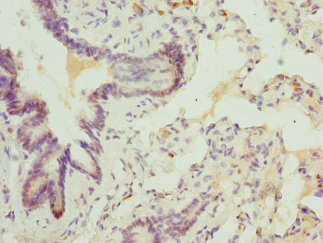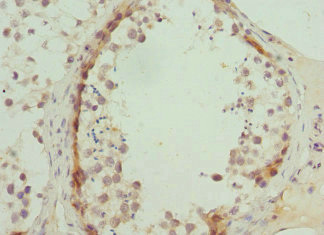Full Product Name
Rabbit anti-Homo sapiens (Human) ABCA3 Polyclonal antibody
Alternative Names
ABC 3 antibody; ABC C antibody; ABC C transporter antibody; ABC transporter 3 antibody; ABC-C transporter antibody; ABC3 antibody; ABCA 3 antibody; Abca3 antibody; ABCA3 protein antibody; ABCA3_HUMAN antibody; ABCC antibody; ATP binding cassette 3 antibody; ATP binding cassette sub family A (ABC1) member 3 antibody; ATP binding cassette sub family A member 3 antibody; ATP binding cassette transporter 3 antibody; ATP-binding cassette 3 antibody; ATP-binding cassette sub-family A member 3 antibody; ATP-binding cassette transporter 3 antibody; CED7. C. elegans; homolog of antibody; EST111653 antibody; LBM 180 antibody; LBM180 antibody; MGC72201 antibody; P180 Lamellar Body Protein antibody; SMDP3 antibody
Immunogen
Recombinant Human ATP-binding cassette sub-family A member 3 protein (43-203AA)
Immunogen Species
Homo sapiens (Human)
Purification Method
Antigen Affinity Purified
Concentration
It differs from different batches. Please contact us to confirm it.
Buffer
PBS with 0.02% sodium azide, 50% glycerol, pH7.3.
Tested Applications
ELISA, IHC
Recommended Dilution
| Application |
Recommended Dilution |
| IHC |
1:20-1:200 |
Storage
Upon receipt, store at -20°C or -80°C. Avoid repeated freeze.
Lead Time
Basically, we can dispatch the products out in 1-3 working days after receiving your orders. Delivery time maybe differs from different purchasing way or location, please kindly consult your local distributors for specific delivery time.
Usage
For Research Use Only. Not for use in diagnostic or therapeutic procedures.







